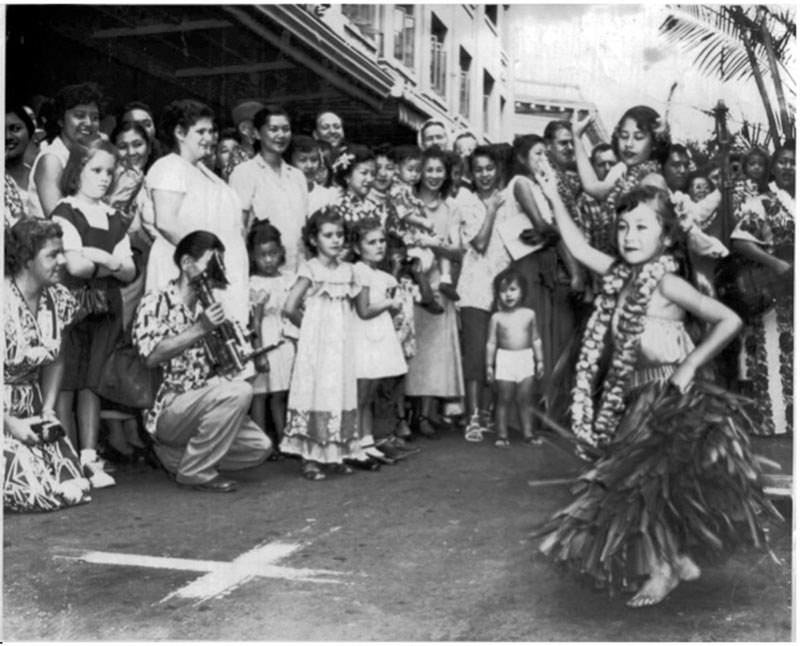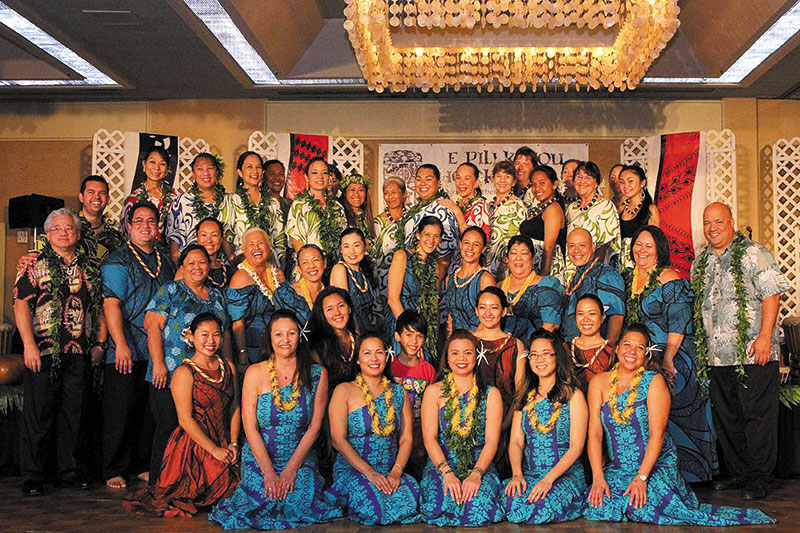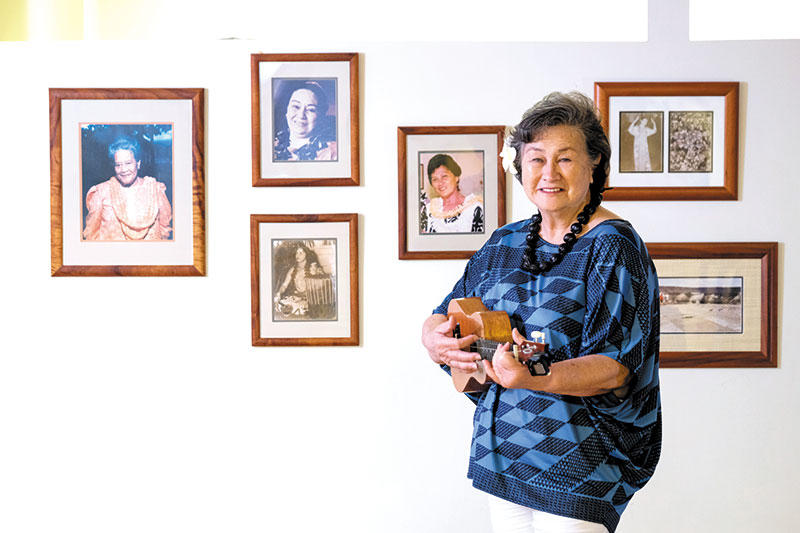A Kumu’s Calling
There’s little doubt that kumu hula Pohai Souza was born to dance and share that rich part of Hawai‘i’s culture with the world. It’s why she was this year’s honoree at the 23rd annual E Pili Kākou I Ho‘okahi Lāhui, which took place Feb. 28-29 and March 1 at Kaua‘i Beach Resort.
Choosing Souza as 2020’s distinguished guest was a no-brainer for event founders Blaine Kia, Maka Herrod and La‘amea Almeida. All three kumu hula have dedicated their lives to the performance art and are more than happy to honor a woman whose life has been spent embodying the spirit of the traditional art.
Souza, who leads Hālau Hula Kamamolikolehua, was born into a family proud of their Hawaiian heritage.
“This was unusual at the time when being Hawaiian was not in vogue, and many people did not have the same pride for their ethnicity as they do today,” says Souza. “This was not my family! We played and sang Hawaiian music at every family gathering and listened to Hawaiian music constantly.”

As a young dancer, Pohai Souza performed with Uncle George Holokai’s halau for events like Aloha Week Festival. PHOTO COURTESY POHAI SOUZA
Souza began dancing hula at the age of 3, when her tūtū took her to George Holokai’s studio.
She took to it with the ease of a veteran performer, and danced with his hula troupe for many years, performing at everything from Navy ship arrivals to local festivals.
By the age of 7, Souza was dancing for her aunt Maiki Aiu, who had a studio on Ke‘eaumoku Street in Honolulu. She spent the next 10 years learning from Aiu. It was during her time with Aiu’s studio that Souza realized her special connection to the Garden Isle.
“I am remembering that my hula genealogy and styling actually originates from the beautiful island (of Kaua‘i),” she shares. “Keahi Luahine and Lokalia Montgomery, who were aunty Maiki’s teachers and mentors, were Kaua‘i-born.”

Dancers and organizers gather for a group photo following a previous E Pili Kakou event. PHOTO COURTESY KIA ENTERPRISES LLC
Hula has given so much to Souza’s life.
“I met my husband at a dance out — when my car had an unfixable flat tire, and my hula sister called a friend to come and take us home,” shares Souza. “My husband died at the young age of 45, so I have been a widow for 30 years, but I was blessed with two wonderful children.”
Souza stopped dancing to raise her family and did not dance again until her daughter was a senior in high school. She was asked to be part of a tribute show to celebrate the life of Aiu, and Souza found herself once again dancing on stage.
Souza, though, had no intention of becoming a kumu hula.
“I was very happy being the dancer,” she recalls.
However, during the tribute show, Souza was reunited with kumu Mae Kamamalu Klein and started training under her.
Klein’s ‘ūniki class had already been in session for a year when Souza finally joined.
“I had to play catch-up,” exclaims Souza. “Under our hula genealogy, we not only learn dances but must research everything about the Hawaiian culture — language, history, mo‘olelo, place names, etc. You end up with the equivalent of a Ph.D. in everything Hawaiian. I studied more in those years than I did in college.”
Souza graduated with ‘ūniki rites, and in 1996, she opened her own school in Kaka‘ako: Hālau Hula Kamamolikolehua, a noncompetitive hālau that focuses on the educational aspects of hula through dance, research and personal experience.
Although she retired from teaching at Sacred Hearts Academy five years ago, Souza, a kumu at heart, still returns to help with the school’s May Day festival.
She also remains active in the hula community as a guest speaker and teacher at several hula workshops in Hawai‘i, Japan and across the continental U.S.
“And I still teach at my hālau. I love teaching,” says Souza. “I love when I see the ‘aha!’ moment happen in my haumāna’s eyes. I love watching them grow in understanding the art. I have students whose children are now dancing for me. I love that they entrust me with teaching their children. I love being their kumu!”
As Souza continues to perpetuate the hula legacy and style of her kumu, she shares her guiding philosophy: “Aunty Maiki used to have a saying ‘Hula is life.’ I hope the students I have taught learn that hula is not just a dance. It is not just motion.
“Hula is driven by the words; the poetry of a people. It is not the motion but the emotion that is important. That emotion is conveyed with our entire body, and spirit and life experiences.”





